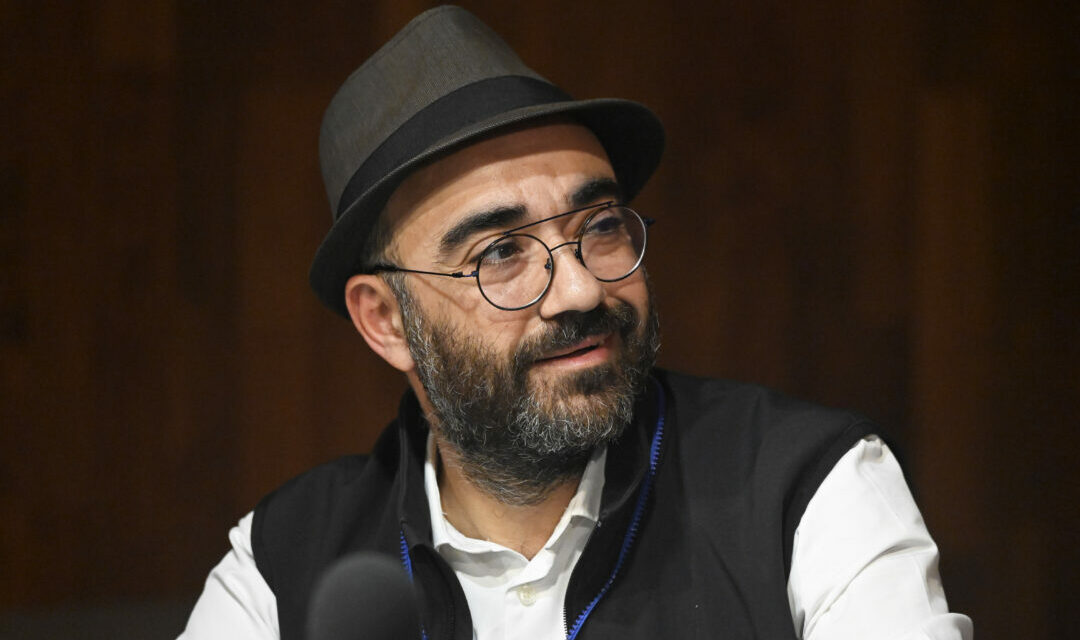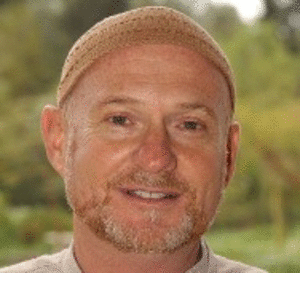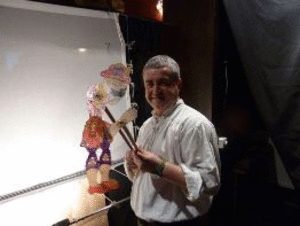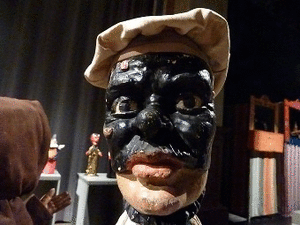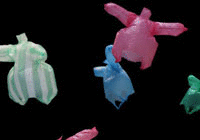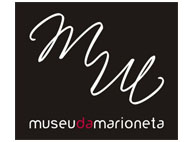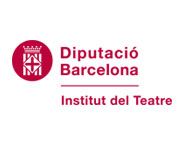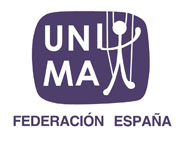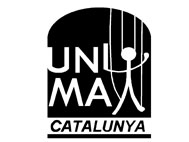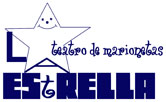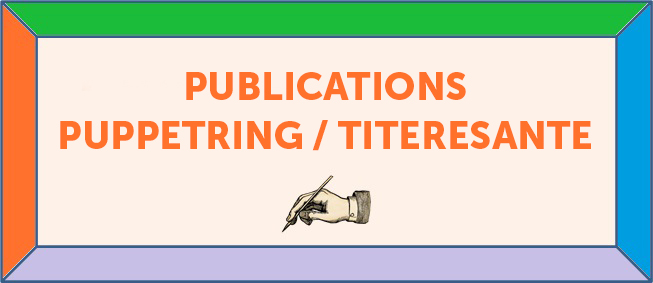(Karim Dakroub. Photo by Iñigo Royo)
IF Barcelona, in collaboration with the project Comunitat 360 of the MNAC (National Museum of Art of Catalonia) with the support of the Secretariat of Sants, in Barcelona, and the MIT (International Museum of Puppets of Catalonia) in Palau-Solità i Plegamans, proposes a double operation with the great Lebanese puppeteer and psycho-therapist Karim Dakroub, for the realization of two intensive workshops with the following contents:
1- ‘Puppets for social transformation’.
– Friday 13 September from 4.30 p.m. to 8.30 p.m. and Saturday 14 September from 11 a.m. to 7 p.m.
– Place: National Art Museum of Catalonia. Palau Nacional, Parc de Montjuïc, s/n, Sants-Montjuïc, 08038 Barcelona
– Capacity: 15 people
– 8 hours of training
– Workshop promoted by IF Barcelona and MNAC, in the framework of the Comunitat360 project with the support of the Sants Secretariat.
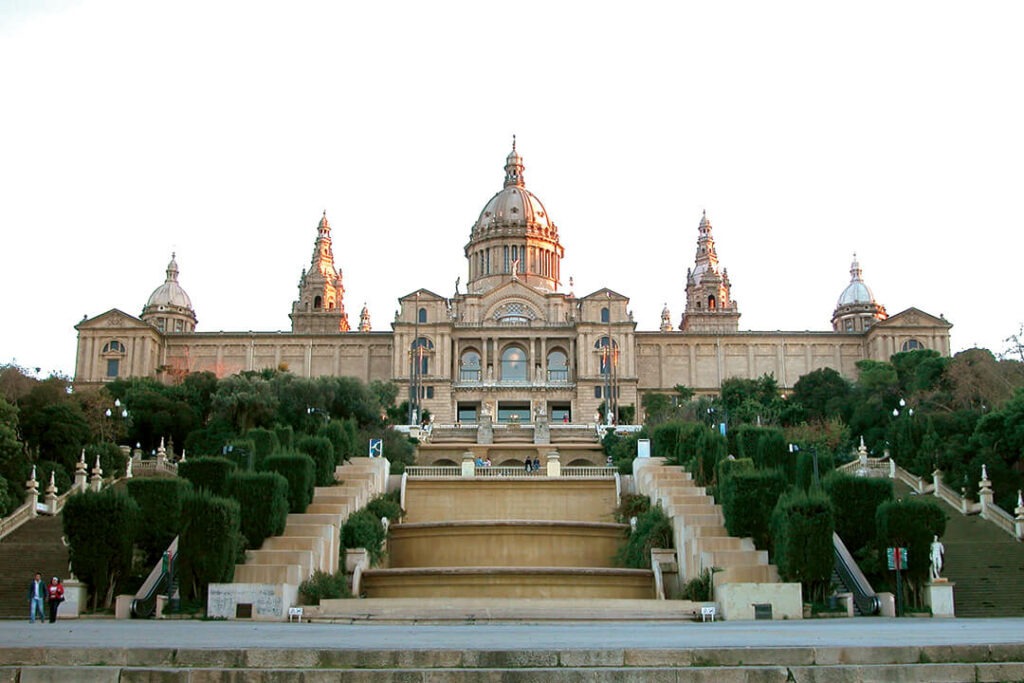
Museu Nacional d’Art de Catalunya. Photo MNAC
– Registration here
– Information: ifbarcelona.info@gmail.com
2- Puppets in the clinical setting. Bringing together daily struggles and “dramatic reality”
. Saturday 21 September and Sunday 22 September, from 15 to 21h.
– Place: International Puppet Museum of Catalonia, in Palau-Solità I Plegamans. Can Falguera. c/ Can Mas, 1-3 – 08184 Palau-Solità i Plegamans
– Capacity: 15 people
– 12 hours of training
– Workshop promoted by IF Barcelona and MIT, with the collaboration of Titeresante magazine.
– Cost: 120 euros. Early birds (before 31 August 2024): 100 euros. 15% discount for Unima members. See here the grants offered by Unima Federación to UNIMA members. Contact UNIMA Federation Spain: secretaria@unima.es
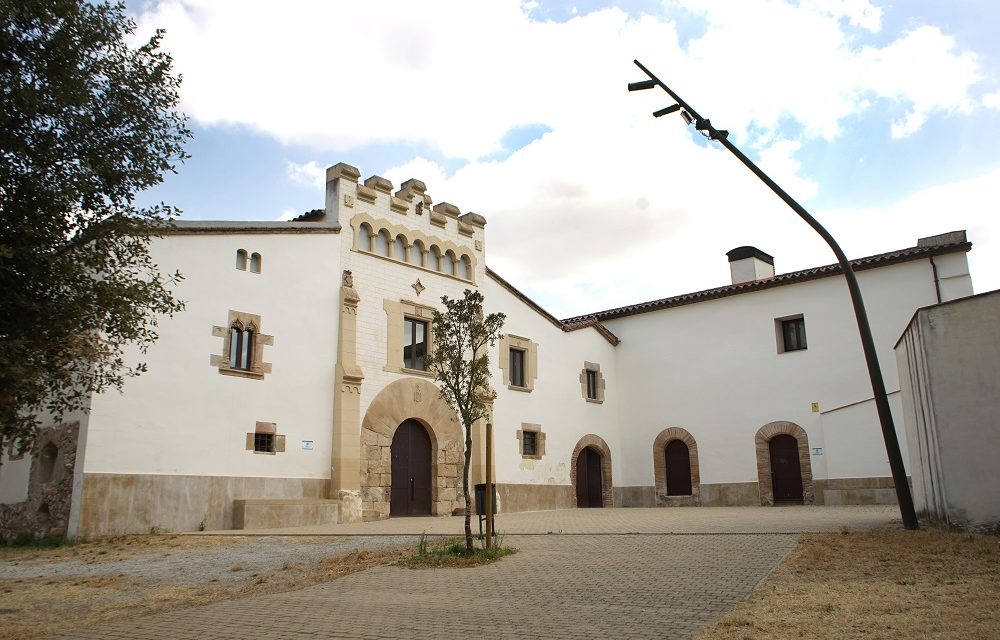
Can Falguera. Museu Internacional de Titelles de Cataunya. Foto Jesús Atienza
– Registration here
– Information: ifbarcelona.info@gmail.com
Where to live:
For those who are not from Barcelona, in the neighbouring town of Caldes de Montbui, 5 minutes by car or bus from Palau-Solità i Plegamans, there are many possibilities of accommodation. See list at the end of the article. There are also buses from Barcelona to Palau-Solità i Plegamans quite frequently.
1- Puppets for social transformation. AT MNAC, Barcelona
Specialized training for monitors, social workers, psychologists, mediators, artists or puppeteers interested in working in refugee camps or with migrant populations with problems related to violence and harassment.
The workshop uses different methodologies and creative media such as theatre, puppets, drawing, story writing and storytelling as tools to approach these issues.
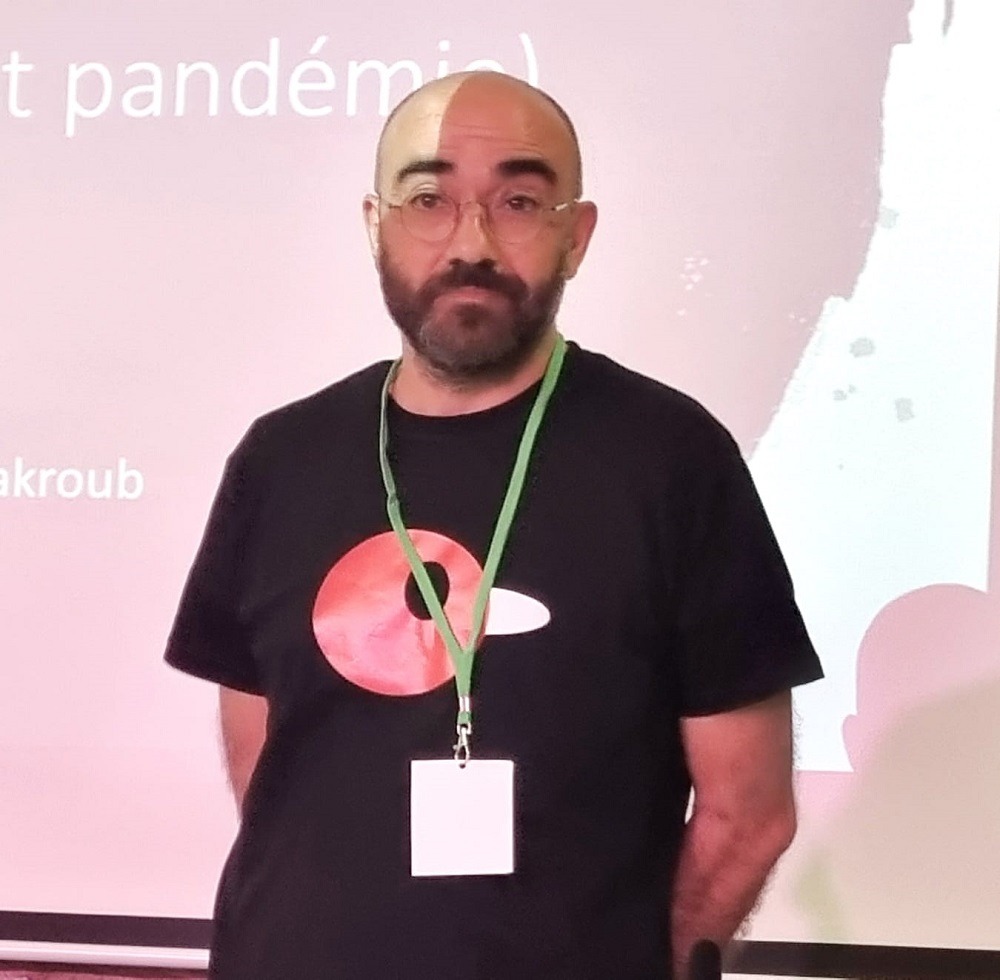
Karim Dakroub. Workshop at the MIT. Foto T.R.
Participants will build their own puppet and will approach methodologies focused on self-image, as well as on reinforcing individual and collective resilience to different challenges and problems, especially related to displacement environments through this artistic practice.
A training given by Karim Dakroub, theatre director, puppeteer, clinical psychologist/psychotherapist and psychosocial consultant. A graduate of the St. Petersburg Theatre Academy and other universities. He is currently a professor at the University of Lebanon. He is also founder and president of the KHAYAL Association for Arts and Education.
2- Puppetry in clinical setting. Bridging daily struggles and ‘dramatic reality’
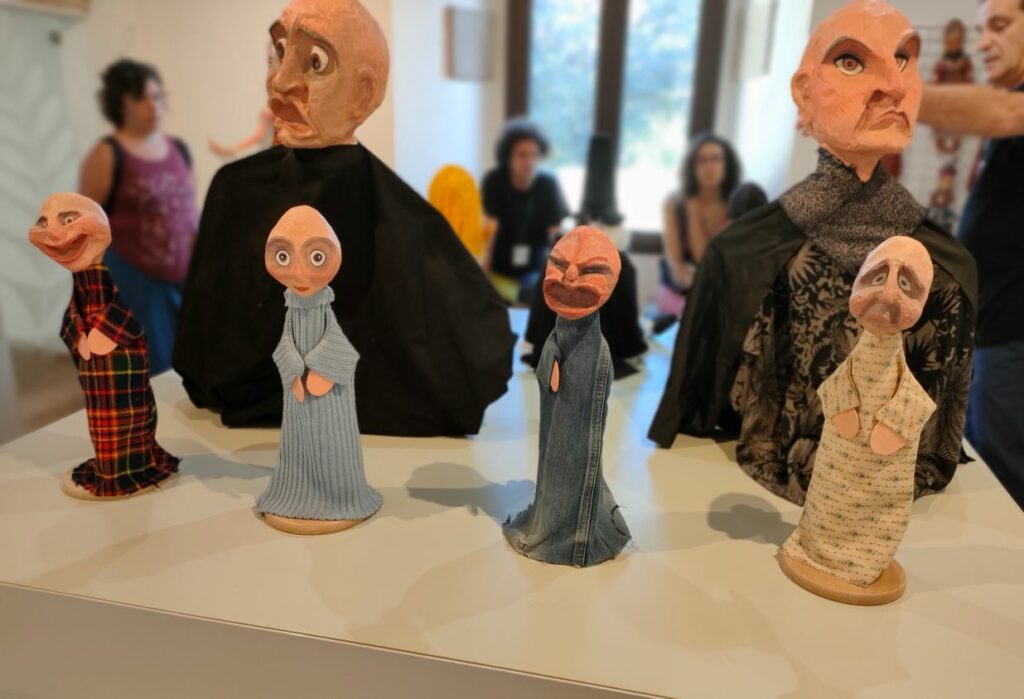
Puppets created in MIT Art Therapy processes. Photo T.R.
Target Audience
Clinical Psychologists, family therapists, educators, family mediators, social workers, and professionals wishing to learn about intervention with children if their family context.
Arguments
This is an outcome of many years of research and application of the use of puppetry in the clinical setting, based on the integration of various experiences and theories, belonging to several approaches and techniques in psychotherapy and therapeutic intervention through art.
The trainer presents the practical steps and the theoretical background of his structured clinical intervention using puppetry as mediator in the framework of the Psychoanalytic and Systemic approaches.
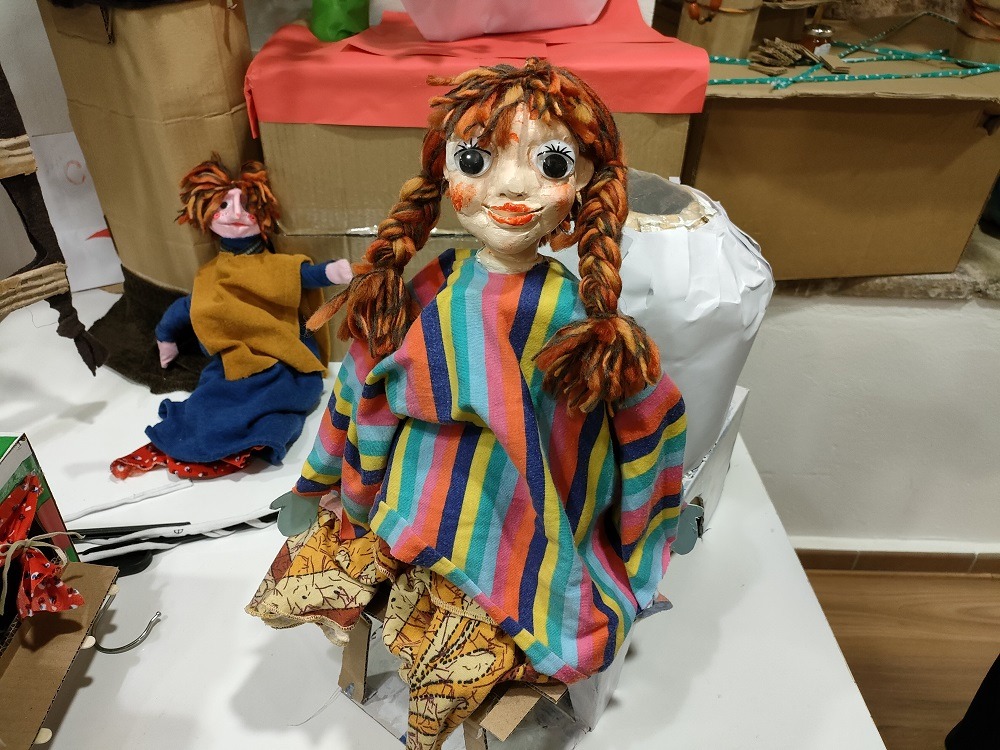
Puppets created by participants in a course with Karim Dakroub. Photo T.R.
The trainer applies the EPR Art Therapy model (Jennings 1998) in order to accustom the patient to a clear framework for the sessions, while adopting a weekly routine. This contributes to building a familiar and safe space for expression, to activating the imagination through puppetry, thus facilitating the transition between daily reality and ‘dramatic reality’ with using symbols in a safe way. The symbolic investment of the activities with puppets leads the patient to consolidate perception of themself and their role in their family.
Objectives
To know how to use relevant tools for intervening with children in their family context.
- To identify the meaning of the symptom and its function in the family dynamic
- To apply a structured intervention based on psychoanalytic / systemic approaches, and Art therapy technics.
- To develop the skills of using puppetry as mediation for enhancing the self-image of the patient, and their perception of their role in the family.
Structure of the training:
Two days of training (12 hours)
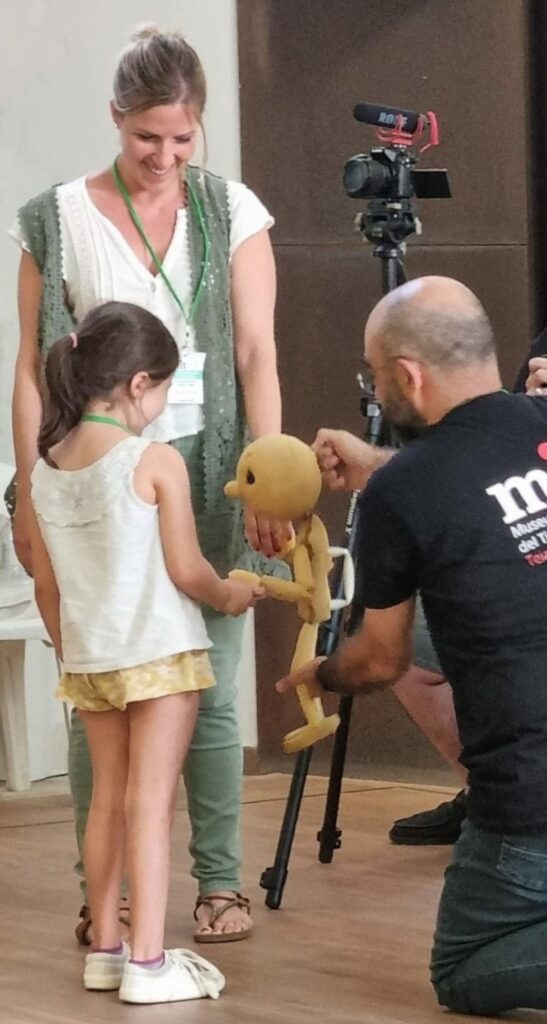
Introduction to the intervention protocol and its theoretical background
Theoretical part:
- The theoretical background of ‘symbolic transformation’, based on two sources: The link between the nature of puppetry and the “animism” that Freud spoke about in Totem and Taboo (Freud 1919), and creative methods in family and couple therapy called ‘Floating objects’ by (Caillé, Rey 2004) (Callié 2007).
- The puppet as a transitional object based on Winnicotts concept of transitional phenomena (Winnicott 1974)
- The puppetry clinical practice in the framework of EPR (Embodiment, Projection, Role) (Jennings 1998)
Practical part:
- Presentation of a clinical structured intervention (protocol) (15 sessions), to treat children’s disorders with using puppetry, in the framework of the Analytic/Systemic approaches.
- Presentation of a case study,
- Application of the technics including handcraft and role play for a better understanding of the clinical intervention.
The Trainer
Karim Dakroub, PhD, Clinical psychologist, psychotherapist, theatre director, puppeteer, and a psychosocial consultant. Professor at the Lebanese University. Founder and president of Khayal Association for Arts and Education, representative of UNIMA (International Union of Puppetry) in Lebanon. He was the pioneer in the Arab world of using puppetry in clinical and psychosocial fields, and one of the main practitioners in this filed worldwide.
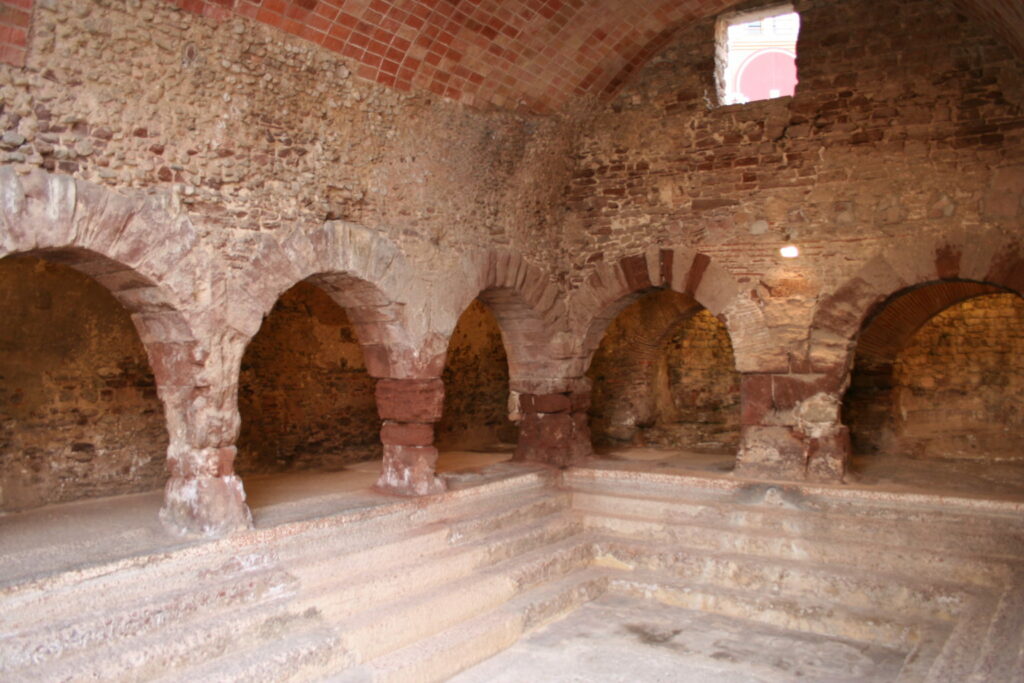
Roman baths of Caldes de Montbui. Photo Wikipedia
HOTELES
PALAU-SOLITÀ I PLEGAMANS
El Petit Bed&Breakfast
Pensió Camí Reial
CALDES DE MONTBUI
Hotel Broquetas
Balneario Termas Victoria
Hotel Vila de Caldes
Hotel Can Caponet
Apartament Font Del Lleó
Casa De Poble Termes Romanes
Villa Mont (casa con 4 habitaciones)
Más información de hoteles en Caldes de Montbui aquí
MOLLET DEL VALLÈS
B&B Hotel Barcelona Mollet (está a 10 min. En coche o autobús)

